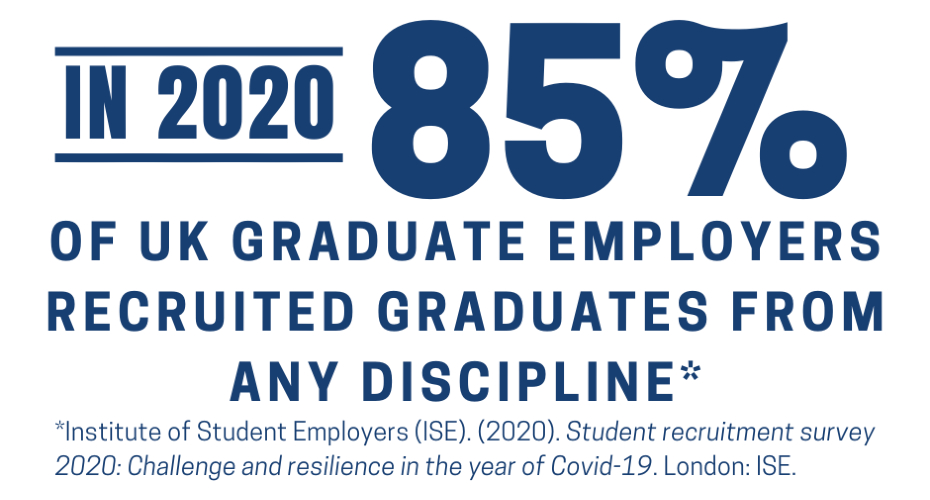.jpg)
Jack Crundwell, MEng Civil Engineering with Industrial Experience (2019)
'There's no doubt that my industrial experience was instrumental in landing my grad job.'
Graduate Structural Engineer, JJO Associates Ltd

What can I do with a degree in Engineering?
The below offers a selection of the destinations University of Exeter graduates from Engineering have gone on to. The information below is not exhaustive, however it does highlight the range of job and further study options available to you after your studies.
If you would like to learn more about any of the jobs listed below you may wish to browse the job profiles on the Prospects website.
Careers with a degree in Engineering
Recent Exeter Engineering graduates have entered a wide range of careers. Some recent examples include:*
- Mechanical engineers
- Civil engineers
- Engineering professionals
- Aerospace engineers
- Engineering project managers and project engineers
- Chartered and certified accountants
- IT quality and testing professionals
- Electronics engineers
- Programmers and software development professionals
- Information technology professionals
Many employers accept applications from graduates with any degree subject, so don't restrict your thinking to the jobs listed above.
Other resources:
- Employment sector pages
- Panopto - Engineering students can explore their career options via this interactive webcast video.
- Prospects to find out more about job profiles
- Graduate Outcomes Data to do a deep dive into the data on what Engineering graduates do after their degree
- LinkedIn Exeter Engineering alumni tool (you will need to be logged in to LinkedIn to access this functionality)
* Data taken from aggregating the responses from full-time, first degree, UK domiciled students who completed 2017/18 and 2018/19 Graduate Outcomes surveys (ordered from most popular to least).
Employers of Exeter alumni with a degree in Engineering
Recent Exeter Engineering graduates have entered a wide range of careers. Some recent examples include:*
- AECOM
- 3T Additive Manufacturing
- Atkins
- Atlas Elektronik UK Ltd
- Babcock International
- Buro Happold
- Clean Earth
- Heathrow Airport
- Hoare Lea
- Jaguar Land Rover
- Martin-Baker Aircraft Company
- Ministry of Defence
- Morgan Stanley
- Mott MacDonald
- Pöyry Global
- Renishaw
- Rolls-Royce
- Siemens Mobility
- Stantec
- Wessex Water
Other resources:
- LinkedIn Exeter Engineering alumni tool (you will need to be logged in to LinkedIn to access this functionality)
* Data taken from aggregating the responses from full-time, first degree, UK domiciled students who completed 2017/18 and 2018/19 Graduate Outcomes surveys.
Skills
An Exeter Engineering degree will arm you with some great employability skills including:
- Turn ideas into reality by applying technical and scientific knowledge to problems while working through cost, quality standards, sustainability and socio-economic implications
- Be aware of commercial and business issues relevant to engineering projects
- Apply mathematical and computational methods to modelling, analysis, design and communication in engineering
- Understand a broad base of scientific principles underpinning electronic, material, mechanical and civil engineering
- Understand a broad range of principles and design methods relating to the chosen engineering discipline in general, with knowledge and understanding in several specialist areas at the forefront of the discipline
- Be aware of the ethical and social issues related to engineering and professional responsibilities
Further Study
Around 27% of Exeter graduates in Engineering go on to pursue further study within 15 months of completing their undergraduate degree. Some recent progression routes include:
- MSc Advanced Computer Science
- MSc Applied Data Science AND Statistics
- MSc Big Data and Business Analytics
- MSc Civil Engineering with Management
- MSc Energy & Sustainability
- MSc Engineering
- MSc Engineering Business Management
- MSc Engineering and Mathematics
- MSc Global Sustainability Solutions
- MSc Human and Biological Robotics
- MSc in Mechanical Engineering
- MSc Materials Science
- MSc Mechanical Engineering
- MSc Operation and Naval Engineering
- MSc Renewable Energy Engineering
- PGCE Physics
- PGCE Mathematics Secondary
- PhD Civil Engineering
- PhD Renewable Energy
Some went on to study other degrees including:
- ACCA
- Masters in Management
- MSc Finance
- MSc Financial Analysis and Fund Management
- MSc Financial Economics
- MSc International Management
- MSc Marketing
Useful resources:
- Find a Masters
- Masters Compare
- Masters Portal
- Prospects
- University of Exeter PG Study
- LinkedIn Exeter Engineering alumni tool (you will need to be logged in to LinkedIn to access this functionality)
* Data taken from aggregating the responses from full-time, first degree, UK domiciled students who completed 2017/18 and 2018/19 Graduate Outcomes surveys
**Individual course names were taken from the University of Exeter's Career Destination survey (2018/19 & 2019/20) as this information is not collected within the Graduate Outcomes survey.
